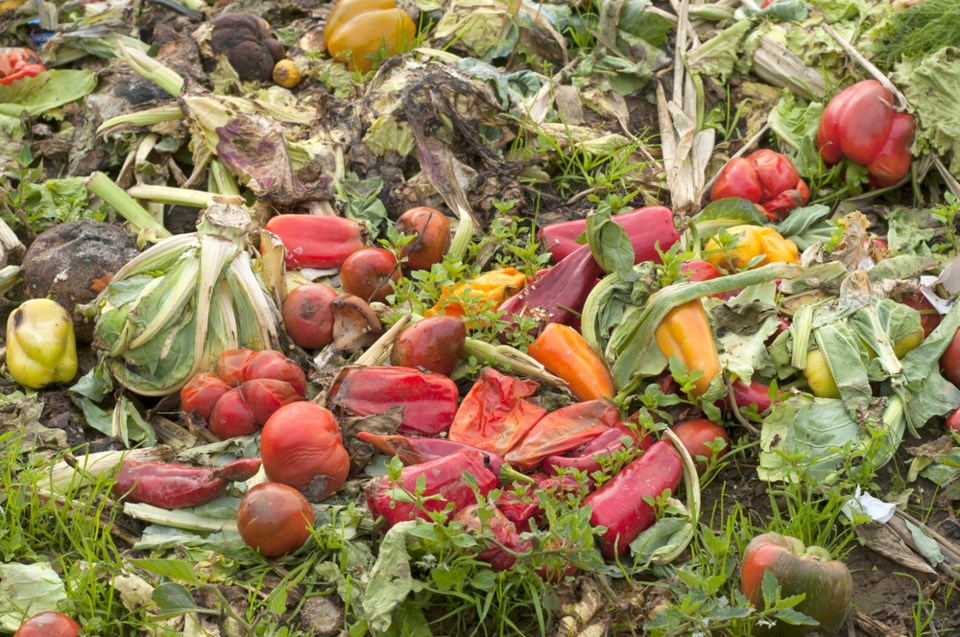Editor's note: Because Barrie is a separated city, the County of Simcoe does not handle waste collection for Barrie residents. This only affects residents in neighbouring towns and townships.
*************************
How could the County of Simcoe help you go greener?
County councillors recently gave the go-ahead to county staffers to prepare a public survey on waste collection and strategy, to be released in November.
The goal of the survey is to determine the needs and priorities of local residents.
While the County of Simcoe has signed a new seven-year waste collection contract starting November 2021 with Miller Waste which will see garbage, recycling and green bins collected curbside through a fully automated collection process, Rob McCullough, director of solid waste management, said there's wiggle room to adjust the contract should the public consultations bring in unexpected feedback.
“The strategy is looking long-term as opposed to individual discussions about specific things like collection methodology and frequency,” said McCullough. “The collection contract can always be changed. We have a mutual agreement between us and the collection contractor that we can change anything we want.”
The results of the survey will help guide the county on their waste priorities for the next five years. There will be two rounds of engagement: a virtual survey in November, and either an in-person or virtual open house in April 2021, depending on the state of the pandemic at that time.
“Through the first round of engagements, we want to know from residents, what are the priorities for the long-term that residents see? We need to know what the end goal is,” said Jen Slykhuis, supervisor of special projects with the county.
“If we can know what those long-term priorities and goals are, then we can start to formulate programs and initiatives focused in those areas we’ve heard back from residents," Slykhuis added. “We’re trying to keep it open-ended."
McCullough points to green-bin diversion as an example of one of the priorities that will continue to be a focus over the next five years.
“As a society, we’re producing more and more waste on a per-capita basis as we go forward. The existing strategy has a goal of one per cent reduction of waste produced per year, per household. It hasn’t worked; it’s going the other way,” he said.
“We’re seeing about a one to two per cent increase, even though we’re doing a good job diverting," McCullough added. "People are producing more waste.”
Over the next five years, McCullough said part of the strategy will be looking at the effectiveness of current facilities, both for residential drop-off and treatment of waste. He also said reduction of waste overall will be important.
“A lot of the organics we’re collecting is food that should have been utilized. In Ontario, a lot of the waste is not just banana peels – it’s rotten bananas that should have been eaten," said McCullough.
"That’s a waste for our residents’ pocketbooks, the environment and for the additional processing for the material after the fact. It’s important we go forward with new programs we make available to the public (to address that)," he said. “We’re looking to see if the public agrees with that."
The county’s overall waste strategy is in place for 20 years, however every five years the county seeks to do a refresh of plans as circumstances change over time.
“We were on track to complete this in 2020, but because of the pandemic, it came along right when we were planning open houses to take place in the spring and early summer, but because of the pandemic it was delayed,” said McCullough.
In the past, public consultations have only attracted about 10 to 20 residents per in-person session, he noted.
“So, we have to ask ourselves, how indicative is that of the general public interest? We have to represent all of the public, not just the interested few that might come out,” he said.
“We’re looking now to get it back on track and the county’s done a lot of work on virtual participation. We’re hopeful that we might even get more participation, or a greater breadth of participation, than through the old system of public open houses,” said McCullough. “We hope this change will be a good one.”
Remaining landfill capacity in Ontario, and elsewhere, is diminishing — with the county’s landfills estimated to be closed by 2027, according to pre-pandemic estimates. Required changes at county sites during 2020 will most likely result in earlier landfill closures and earlier requirements to export 100 per cent of county-generated waste.
The strategy is planned to be finalized in June 2021.
— With files from Bob Bruton

